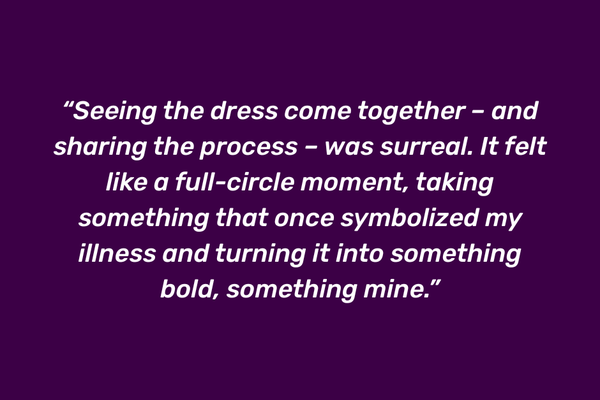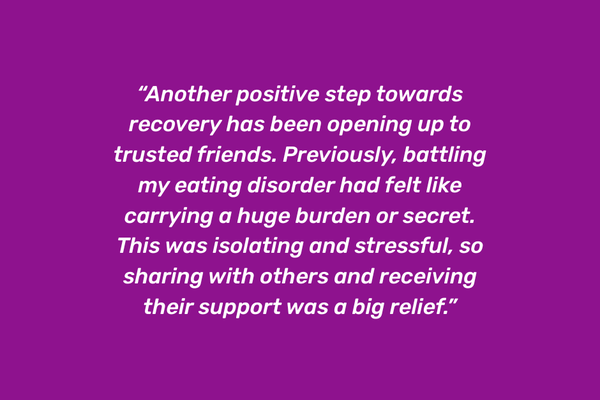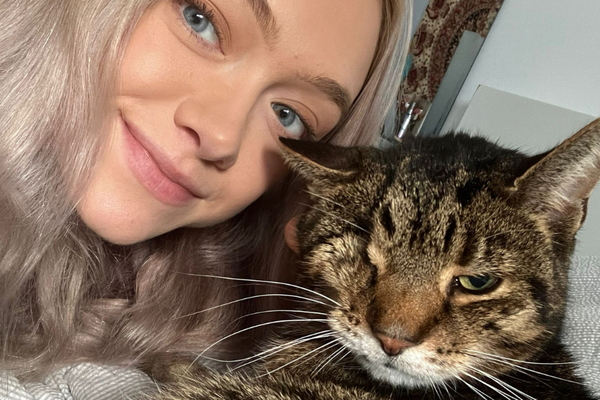Growing up in a South Asian household, food was more than just sustenance – it was the heart of family life. Every meal was a celebration, rich in tradition and flavour. But for me, food was often a source of distress and confusion. Despite the abundance of hearty, nourishing meals, I was always under-weight as a child, a concern that followed me into my teenage years when I was diagnosed with celiac disease.
Celiac disease meant that I had to completely avoid foods containing wheat, barley, and rye. In a culture where staples like roti and naan are central to our diet, this diagnosis felt like a significant loss. It was challenging to navigate family gatherings and festivals where gluten-free options were scarce, leading to feelings of isolation and anxiety around food.
The pandemic brought a new set of challenges. For me, this meant a sudden shift in my eating habits. I found myself gaining weight, a stark contrast to my lifelong struggle with being underweight.
In our community, weight gain can be met with concern and sometimes criticism, often expressed through seemingly harmless comments that can be deeply hurtful. Phrases like "thodi si moti ho gayi ho" (you’ve gained a little weight) became frequent, intensifying my anxiety. This shift in my body, combined with the stress of the pandemic, led me to develop a negative relationship with food.
My relationship with food deteriorated. The stress and isolation made it difficult to maintain a balanced diet, especially with the limited availability of gluten-free foods. I began to restrict my eating, fearing further weight gain. Food became a source of anxiety, and I felt increasingly trapped by my own fears and the uncertainty of the pandemic.
Without access to a therapist, I turned to the internet in search of support and information. That’s when I discovered Beat. The sense of community I found on their website, and stories from others who had faced similar challenges, gave me hope and the courage to start my own journey towards healing.
Recovery is about learning to view food as a source of nourishment and pleasure, rather than a cause for fear or guilt. With the help of Beat’s resources, I began to take small, positive steps towards rebuilding a healthy relationship with food. I learned to embrace gluten-free alternatives to traditional South Asian dishes, finding joy in cooking and eating once again. I focused on listening to my body and honouring its needs, rather than fixating on my weight. I came to understand that health and well-being are about balance, not numbers on a scale. Recovery has taught me to be kinder to myself and to celebrate my progress, no matter how small.
To anyone reading this who may be struggling, I want you to know that you are not alone. It’s okay to seek help. In our South Asian community, where food is such an integral part of our culture, it’s crucial to foster understanding for those facing eating disorders and dietary challenges. By opening up conversations and reducing stigma, we can support everyone to feel safe to seek help and share their experiences. Together, we can build a future where food is a source of joy and connection, not fear and anxiety.
If you've been affected by any of the issues raised in this story, or are concerned for yourself or a loved one, you can find support and guidance on the help pages of our website.
Help us change lives
Donate today to help us provide more vital support to people like Zainab.
Estranha's Twogether Fundraiser
22 April 2025Seeing the dress come together – and sharing the process – was surreal. It felt like a full-circle moment.
Recovery Hope - Bee's story
22 April 2025I am sharing my story in the hope that others may find it relatable or helpful to their own recovery journeys.
Reasons to Recover: How our furry friends helped us in recovery part two
20 February 2025Here is part two of how your pets supported you through your recovery.


